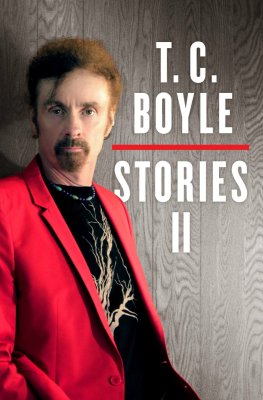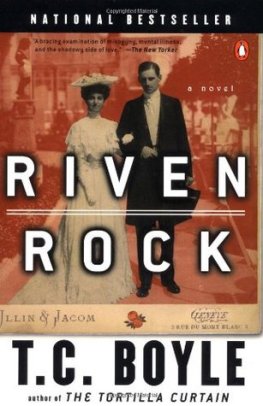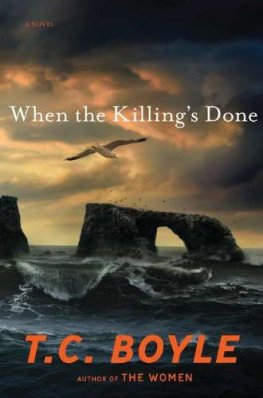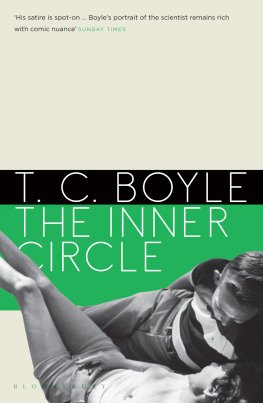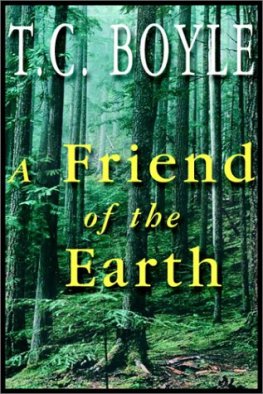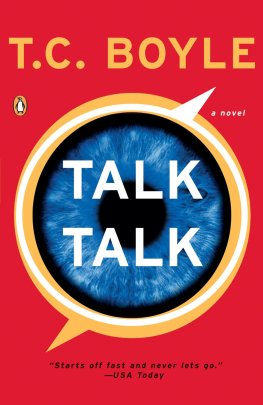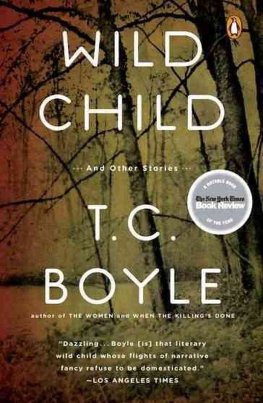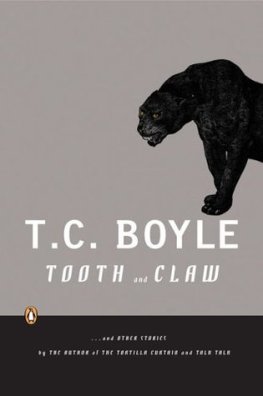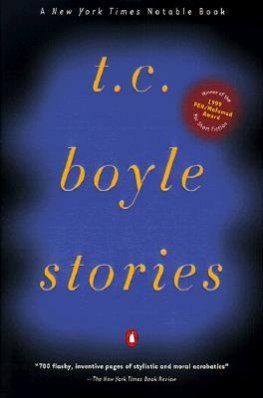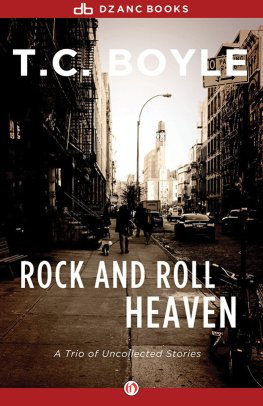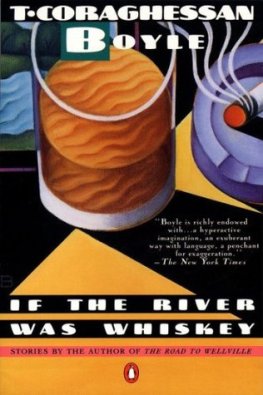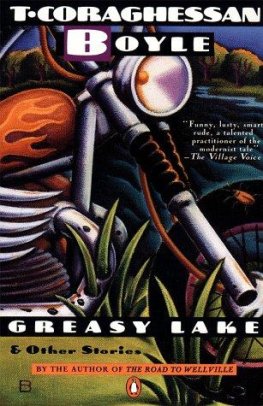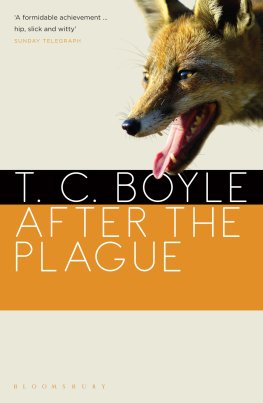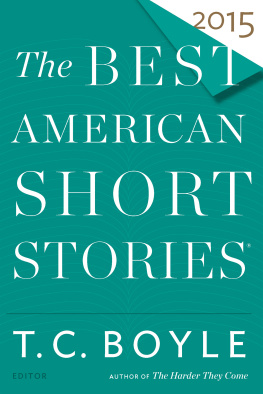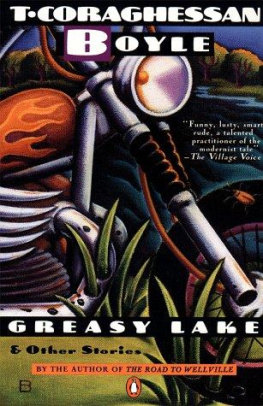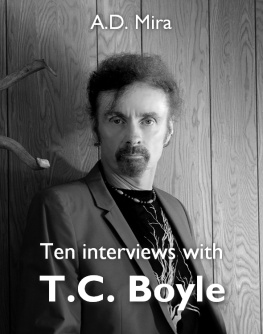T. C. Boyle
T.C. Boyle Stories II: Volume II
For Spencer, who comes bearing his own stories
I do not know which to prefer,
The beauty of inflections
Or the beauty of innuendoes,
The blackbird whistling
Or just after.
Wallace Stevens, Thirteen Ways of Looking at a Blackbird
When putting together the first volume of the Collected Stories for publication in 1998, I chose a rather whimsical arrangement, in three sections, of the sixty-eight pieces that made the final cut. The sections were titled Love, Death, And Everything in Between, and the stories collected therein represented a period of some twenty-five years work, from the early 1970s to the mid-1990s. The present volume collects the stories written since then, though some pieces that appeared in the earlier volumeMexico, Juliana Cloth and Little Fur Peopleshould rightly have been included in 2001s After the Plague and so in this collection, but were published in the first volume at the suggestion of my editor so as to make T.C. Boyle Stories something more than simply a reassemblage. (In keeping with this precedent, Part IV of this book, A Death in Kitchawank, presents an entirely new collection of stories written since the publication of Wild Child in 2009.)
This time around Ive chosen a more straightforward arrangement that is, roughly chronological because I suppose Ive become ever so slightly less whimsical as I move on down the long dark road that inescapably ends in an even darker place. Still, readers will find here many of the satires, tall tales and excursions into the absurd the first volume provided, though perhaps as a lower percentage of the whole. There are a number of decidedly non-whimsical stories here too, pieces like When I Woke Up This Morning, Everything I Had Was Gone, Tooth and Claw, Rastrows Island and La Conchita, or the odd story drawing on autobiographical elements like Up Against the Wall or Birnam Wood (as with If the River Was Whiskey, The Fog Man and Greasy Lake in the first volume), as well as historical meditations, memory pieces and comedic stories in various valences, from laugh-aloud to the sort of strained laughter that catches in your throat. All well and good. All part of the questing impulse that has pushed me forward into territory I could never have dreamed of when I first set out to write that is, to understand that there are no limits and everything that exists or existed or might exist in some other time or reality is fair game for exploration.
To me, a story is an exercise of the imagination or, as Flannery OConnor has it, an act of discovery. I dont know what a story will be until it begins to unfold, the whole coming to me in the act of composition as a kind of waking dream, and it might begin with the exploration of a subject or a theme or a recollection or something as random as my discovery that the wild creatures in Tierra del Fuego were going blind as a result of the hole in the ozone layer that opens up there annually (Blinded by the Light) or that the Shetland Islands are the windiest place on earth (Swept Away). The professorial dictum has always been to write what you know, but I say write what you dont know and find something out. And it works. Or can work. After all, a story is a seduction of the reader, and such a seduction can so immerse him or her that everything becomes plausible. And so with Swept Away. Id never been to the Shetland Islands, though Id been near enough on a fishing boat off Oban, where I nearly froze to death but the story came to me as if Id been born and raised there in some other life. After it appeared in The New Yorker, I heard from the editors of The Shetlander, the magazine of the islands, who wanted to know when and where Id lived amongst them.
All of the stories collected here were written after my move to Santa Barbara from Los Angeles in 1993, and readers will note that the stories that are not locked into a specific locale the Fresno of The Underground Gardens, where Baldasare Forestiere constructed his fantastic maze of subterranean rooms, for instance, or The Unlucky Mother of Aquiles Maldonado, which takes place in Caracas, or Dogology in India have moved north as well. And west, if you take into account the many stories set in the New York of my younger days, most of which appear in the previous volume. To that degree, I suppose I am writing what I know, at least in terms of exploring the history, ecology, emotional temperature and socioeconomics of whatever environment I find myself in, and this includes the many stories that Ive set in the Sequoia National Monument (formerly Forest), a place to which Ive been escaping since I first moved to the West Coast. My Pain Is Worse Than Your Pain, for instance, grows directly out of an incident Id heard rumor of up there in a microcosmic community I like to call Big Timber by way of eliding the real and actual. I dont know the people involved in that incident and I dont want to know them. All I want, from that story or any other, is to hear a single resonant bar of truth or mystery or what-if-ness, so I can hum it back and play a riff on it.
Los Angeles, Santa Barbara, the Sierra Nevada, the desert, the chaparral, the sunstruck chop of the Pacific, jagged agaves and wind-ravaged palms until I was in my twenties Id never been west of the Hudson, and when I did go west it was first to Iowa City and the Iowa Writers Workshop and then, finally, to Los Angeles. To say that northern Westchester County, where I was born and raised (in Peekskill, thirty miles up the river from Manhattan) is provincial might seem surprising, but it was when I was a boy, at least in my parents milieu. I was raised in a working-class household in which we didnt have books or the tradition of them and didnt know much of the outside world, not even the City, with all its cultural glories, which seemed infinitely remote to us. We had TV, and TV dominated our household, the gray screen coming to life when we arrived home from school/work and flicking off when we went to bed. Though the local schools provided a sound egalitarian education, I was pre-literary in those days, a hyperactive kid playing ball and roaming the woods and mainly staying out of trouble. My mother read to me when I was young it was she who taught me to read, in fact, as I was too impatient and immature to sit still in class but my earliest memory of the thrill of fiction comes from my eighth-grade English class at Lakeland Junior High, where Mr. (Donald) Grant would read stories aloud to us on Fridays if we were good, and we were very good indeed. Mr. Grant was an amateur actor and he really put the thunder into chestnuts like To Build a Fire and The Most Dangerous Game. Wed leave his class trembling.
Darwin and earth science came tumbling into my consciousness around then, and I told my mother that I could no longer believe in the Roman Catholic doctrine that had propelled us to church on Sundays for as long as I could remember. To her credit, patient woman, she set me free from all that, and I suppose Ive been looking for something to replace it ever since. What have I found? Art and nature, the twin deities that sustained Wordsworth and Whitman and all the others whose experience became too complicated for received faith to contain it. At seventeen I found myself at SUNY Potsdam, the New York State university systems music school, where I had gone as an ardent disciple of John Coltrane and lightning-fast technician of saxophone and clarinet. Unfortunately, I had no feel for the sort of music we were expected to play and I flunked my audition. But still, there I was in college, and I fell directly into the cold embrace of the existentialists on the one hand and the redeeming grace of Flannery OConnor, John Updike, Saul Bellow and the playwrights of the absurd on the other. If I had to choose a defining moment it was when I first read OConnors A Good Man Is Hard to Find for an English class: here was the sort of story that subverted expectations, that began in one mode situation comedy, familiar from TV and ended wickedly and deliciously in another. And Id thought there were rules.

